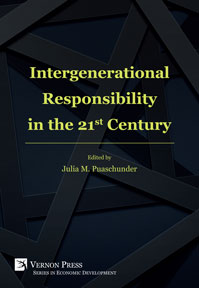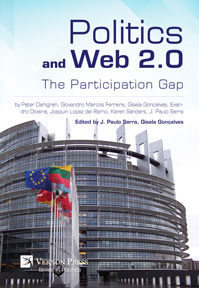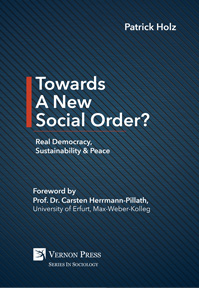Frozen Justice: Lessons from Bosnia and Herzegovina’s Failed Transitional Justice Strategy
by Jared O. Bell
Purchase this book
(click here to change currency)
Transitional justice (TJ) has become a sine qua non for societies transitioning from large-scale violence and repression. Whether TJ processes are effective and how the most affected populations perceive them though remains largely unresearched. Jared Bell’s cutting-edge work provides a crucial window into the perceptions of ordinary citizens of Bosnia and Herzegovina on the country’s attempts at TJ.
Dr. Ismael Muvingi,
PhD Program Director, DCRS, Nova Southeastern University
Frozen Justice is a timely, critical account of the challenges to dealing with the past more than a quarter of a century after ethnic conflict and subsequent human rights violations devastated Bosnia and Herzegovina (BiH) in the 1990s. Dr. Jared Bell, Assistant Professor at the International University of Sarajevo, provides an in-depth analysis of transitional justice mechanisms in the post-Dayton Peace era, including retributive and restorative justice strategies, to foster accountability and reconciliation. Despite the decades that have passed, the author soberly demonstrates that the international policy strategies implemented on the ground have only resulted in partial success to promote peace and security. He skillfully uses qualitative interview data from over 450 participants across the country to assess why society has failed to come to terms with its burdensome past. Dr. Bell’s work adds a new, rich layer of empirical data, which helps better understand the perpetual post-conflict stalemate in BiH. He competently guides readers through the intricate political post-war imbroglio of Bosnian institutions and his survey of three major cities, Sarajevo, Mostar and Banja Luka, serve as a compelling stepping stone for future research to delve even deeper into the nuanced transitional justice issues that are not only emblematic for BiH, but that also occur in many post-conflict societies at large.
Prof. Dr. Arnaud Kurze
Montclair State University, USA
Guided by their leaders, societies have the obligation to build the peace after a destructive civil war. Commentators are not convinced that the foundation for that lasting peace has been laid in Bosnia and Herzegovina (Bih). Instead, there is the general feeling that more than two decades after the 1992-1995 civil war, BiH lacks the capability of a functional state that can implement reforms necessary to meet the basic economic and other needs of citizens.
Using the concept of transitional justice and survey of prevalent attitudes in three key communities—Sarajevo, Mostar, and Banja Luka—this new book contributes significantly to that debate. It builds on and updates studies like the one by G. Wilkes et al., “Reconciliation and trust building in Bosnia-Herzegovina: A Survey of Popular Attitudes in Four Cities and Regions,” published in 2012 and included in the book’s bibliography. The work’s other merits include a good background history of BiH and an excursion into transitional justice in other republics in former Yugoslavia like Croatia, Kosovo, Montenegro, and Serbia necessary for a wholesome understanding of BiH, including comparative analysis.
Prof. Dr. Philip C. Aka
Acting Dean and Professor of Law, Faculty of Law, International University of Sarajevo, Bosnia and Herzegovina
Researching elements of transitional justice (as an inherently political process) and analyzing internal socio-political relations in Bosnian plural society, the author concludes, based on the conducted survey, that there is no political will to address the war crimes and to lead the country's reconciliation efforts. Furthermore, the author emphasized that it is impossible to begin to understand the current political system in B&H without understanding why it was constructed this way after the conflict. An unfinished process of implementation of the Dayton Agreement, as well as the non-application of the Decision of the Constitutional Court, contributes and is conducive to further obstruct the reconciliation in Bosnia and Herzegovina.
Prof. Dr. Dženeta Omerdić
University of Tuzla, Bosnia Herzegovina
In May 1993 the United Nations Security Council founded the International Criminal Tribunal for the former Yugoslavia (ICTY). Based in the Hague, Netherlands, the ICTY was formed with the objective of prosecuting those who had committed war crimes, crimes against humanity and genocide in Bosnia and Herzegovina and elsewhere in the former Yugoslavia during the early to mid-90s. During its mandate (1993-2017), the tribunal heard many cases and tried numerous perpetrators, from those who carried out the killings to those who orchestrated and ordered them. In spite of its accomplishments, the ICTY is considered to be highly controversial. It is debated if the ICTY did enough to foster healing and reconciliation in many of the conflict-torn societies. Many scholars argue that the tribunal operated adequately within their mandate and sought to promote justice and reconciliation, however, those who lived through the brutal wars would argue that there has simply been no justice. Importantly, Bosnia and Herzegovina still remains a country divided by issues of post-conflict justice, among other things.
In 2010 a government-led strategic plan emerged that was intended to deal with the unfinished “business” of justice and promote reconciliation throughout the country. However, it failed to do this, and there is currently no political will or momentum to revive it. But, was this strategy doomed to failure from the beginning? In the form of a quantitative study, this book examines the possibility of reconciliation being achieved in Bosnia and Herzegovina through the methods fostered by the strategy. Focusing on three major cities, Sarajevo, Mostar, and Banja Luka, Dr. Jared Bell surveyed nearly 500 people in order to shed light on the subject of the national transitional justice strategy and reconciliation from the perspective of the everyday populace.
List of Tables
List of Figures
Dedication
Acknowledgements
Chapter 1 Introduction
Chapter 2 Key Transitional Justice Theories and Mechanisms
Chapter 3 Key Factors in Implementing Transitional Justice
Chapter 4 The Link between Transitional Justice and Reconciliation
Chapter 5 The History of Modern Day Bosnia and Herzegovina
Chapter 6 Transitional Justice, Reconciliation, and Bosnia and Herzegovina
Chapter 7 Transitional Justice Progress in Other Former-Yugoslav States
Chapter 8 Methodological Considerations
Chapter 9 Findings and Implications
Chapter 10 Summary, Conclusions, and Lessons
Appendix A: Study Participation Letter
Appendix B: Studija Učešće Pismo
Appendix C: Recruitment Statement
Appendix D: Izjava Zapošljavanje
Appendix E: Survey A
Appendix F: Survey B
Index
Dr. Jared O. Bell is a transitional justice and human rights scholar-activist based in Sarajevo, Bosnia and Herzegovina. He holds a Bachelor’s degree from the Duquesne University in International Relations and Theology, a Master of Science Degree from the University of Baltimore in Negotiation and Conflict Management, and a PhD from Nova Southeastern University in Conflict Analysis and Resolution with a focus in International Peace and Conflict. During his doctoral studies, he focused his research on peace building, reconciliation, transitional justice, and human rights. In addition to his formal education, Dr. Bell has also studied and received professional training at the University of Leiden’s Grotius Centre for International Legal Studies’ Summer School for Human Rights and Transitional Justice, the Montreal Institute for Genocide and Human Rights studies, the European Inter-University Centre for Human Rights and Democratization’s Venice Academy of Human Rights, the Universities of Groningen and Rijeka’s Cres Summer on “Transitional Justice and the Politics of Memory”, and Al Akhawayn University in Ifrane, Morocco.
He has also worked with various human rights, peace building, and development projects with a variety of organizations such as Peace Direct, the United Nations Development Programme, the United Nations Human Rights Council, as well as, the American Red Cross and the Maryland Office of Refugees and Asylees. Dr. Bell has also written various articles and presented on a number of topics related to international affairs, transitional justice, and human rights across the United States and Europe. Dr. Bell is a member of the US Human Right’s Network where he has served as a Co-Chair of the Domestic Implementation Working Group. He is also a member of the Delta Epsilon Iota Honor Society, the International Studies Association, the International Network of Genocide Scholars, and the Alliance for Peacebuilding. He also serves on the editorial board of the Journal of Interdisciplinary Conflict Science and as a peer reviewer for the International Journal of Corporate Strategy and Social Responsibility.
Transitional Justice, Transitional Justice Strategy,Reconciliation, Human Rights, Peace Building, Post-Conflict Development, Quantitative Research, Survey Research, Bosnia and Herzegovina, Western Balkans, Balkans, The Former Yugoslavia, Sarajevo, Mostar, Banja Luka, Bosniaks, Croats, Serbs
Subjects
Sociology
Series
Series in Sociology
Related services
Find in a library near you Download print-friendly flyer Download sample chapter Download HQ cover Find in Bookshop.orgSee also
Bibliographic Information
Book Title
Frozen Justice: Lessons from Bosnia and Herzegovina’s Failed Transitional Justice Strategy
ISBN
978-1-62273-204-3
Edition
1st
Number of pages
154
Physical size
236mm x 160mm

![Frozen Justice: Lessons from Bosnia and Herzegovina’s Failed Transitional Justice Strategy [Hardback]](/file/6124/ccd8848e610dffa216c563696fdbcb29/1529503150.jpg)





